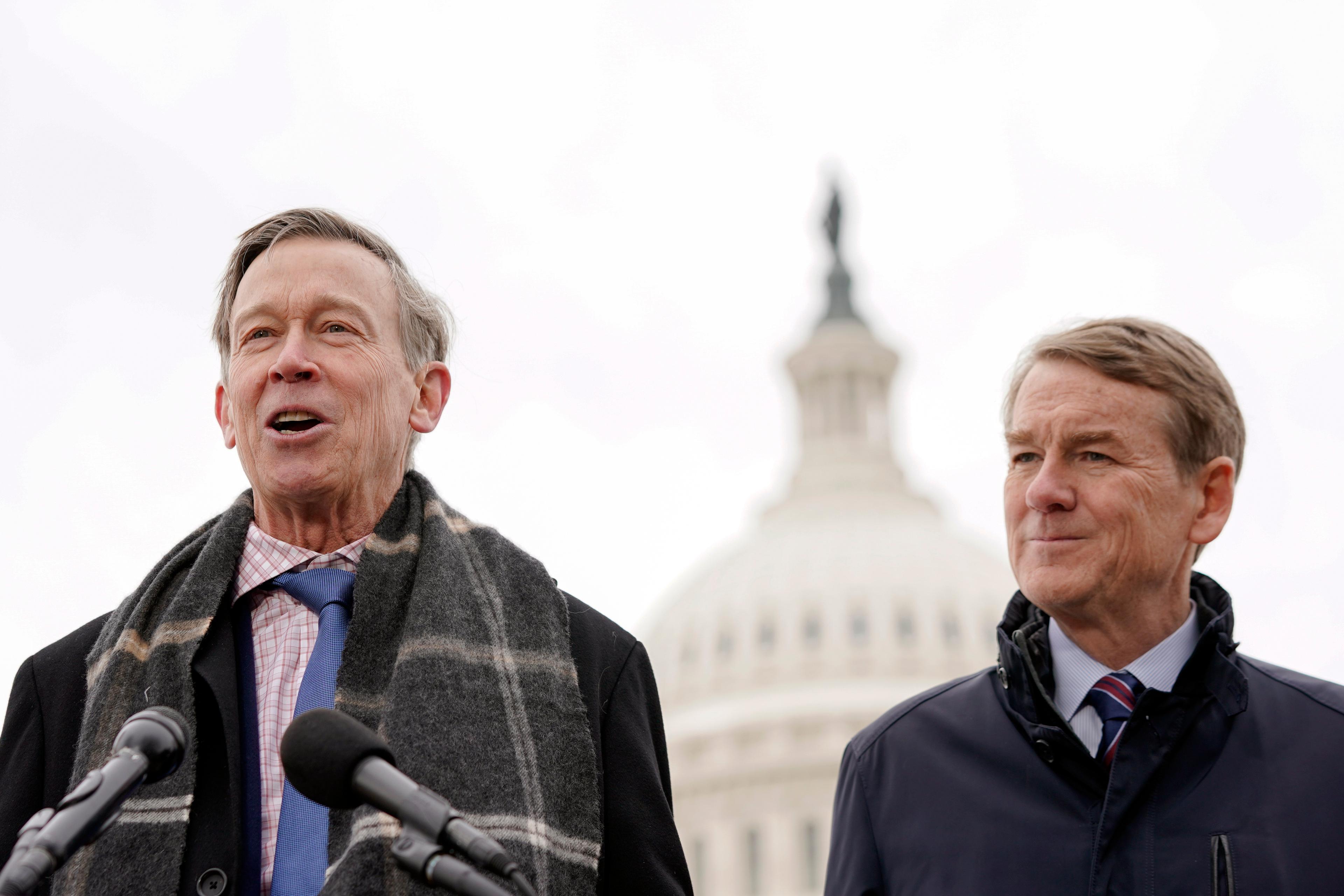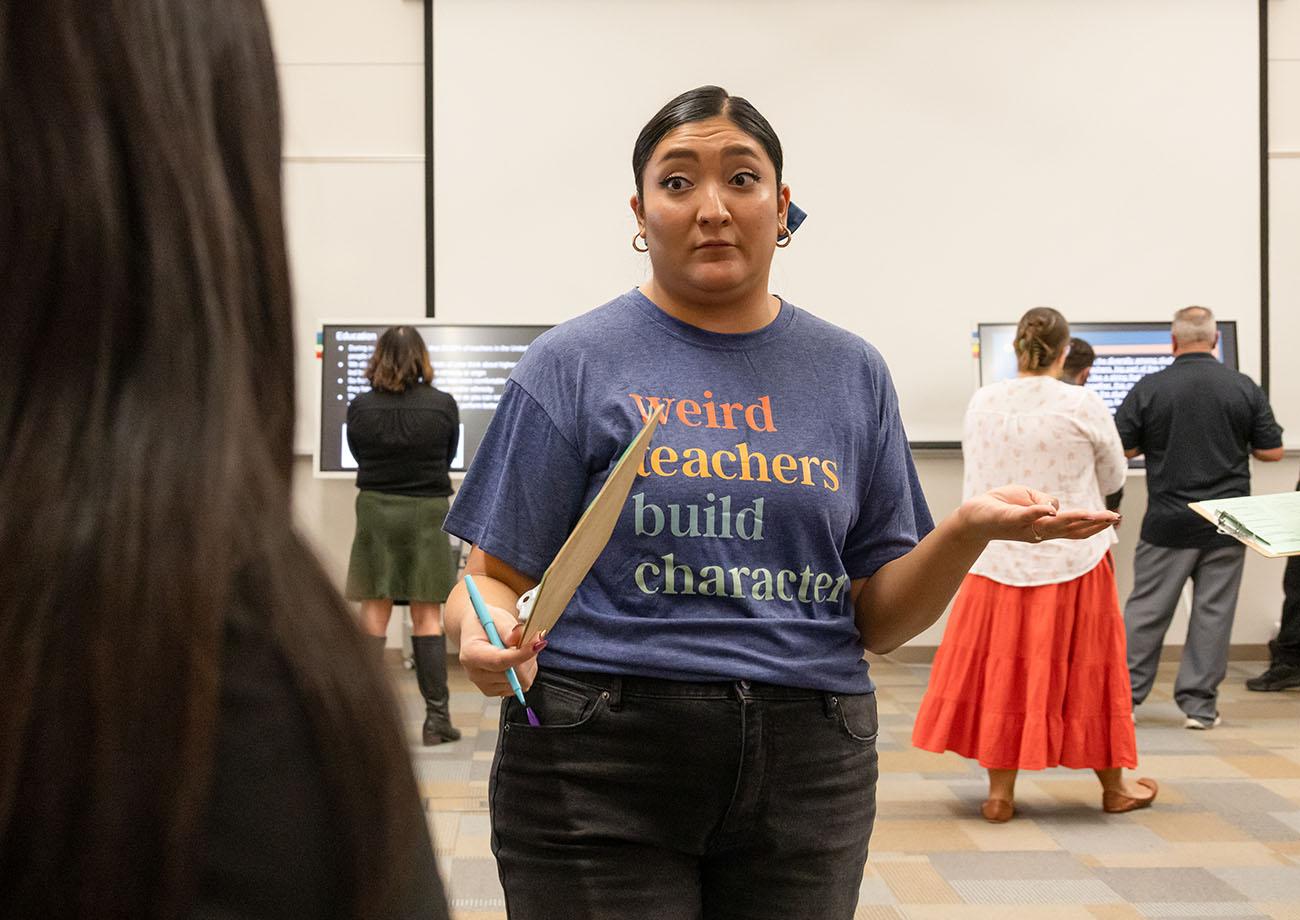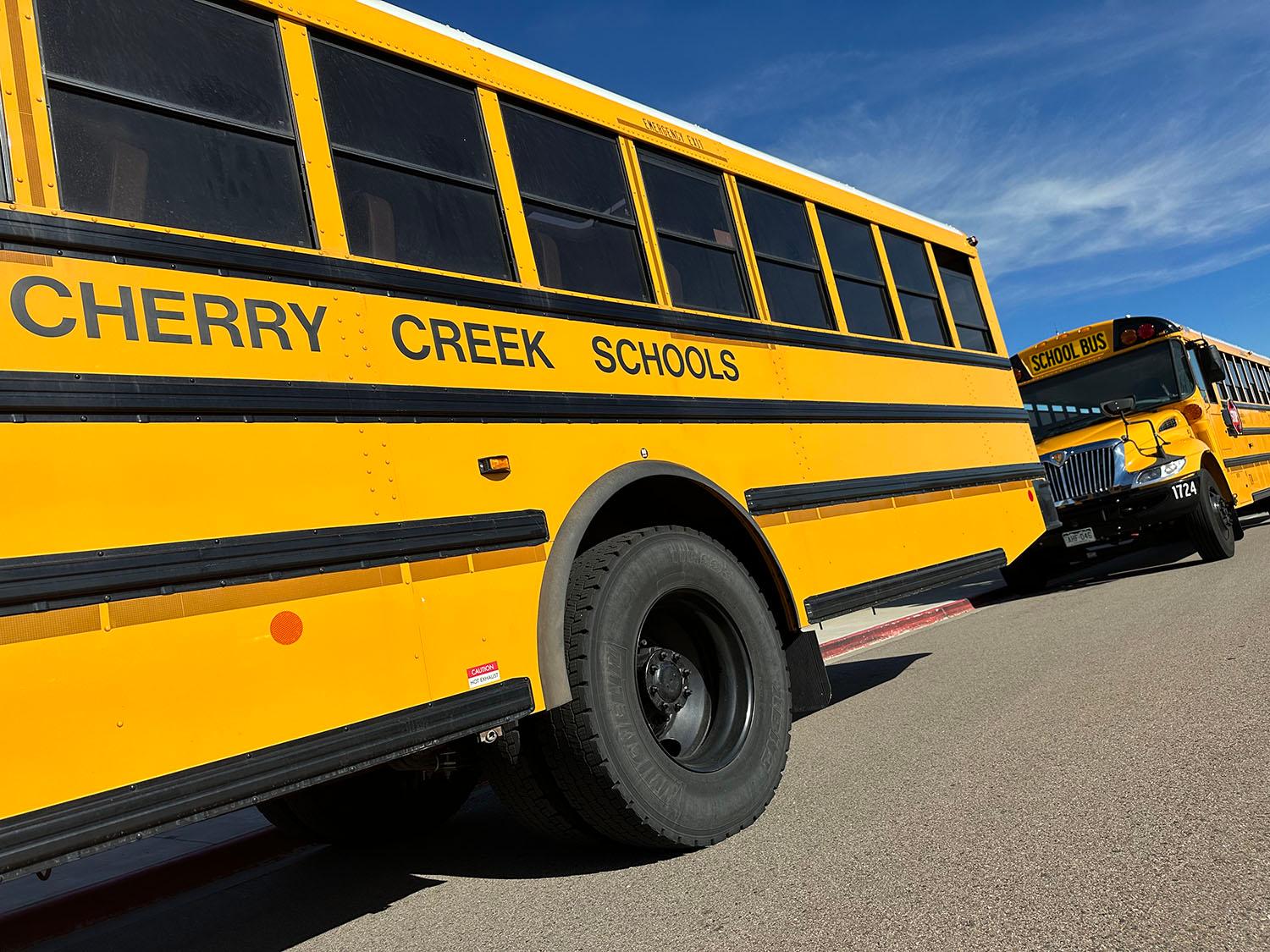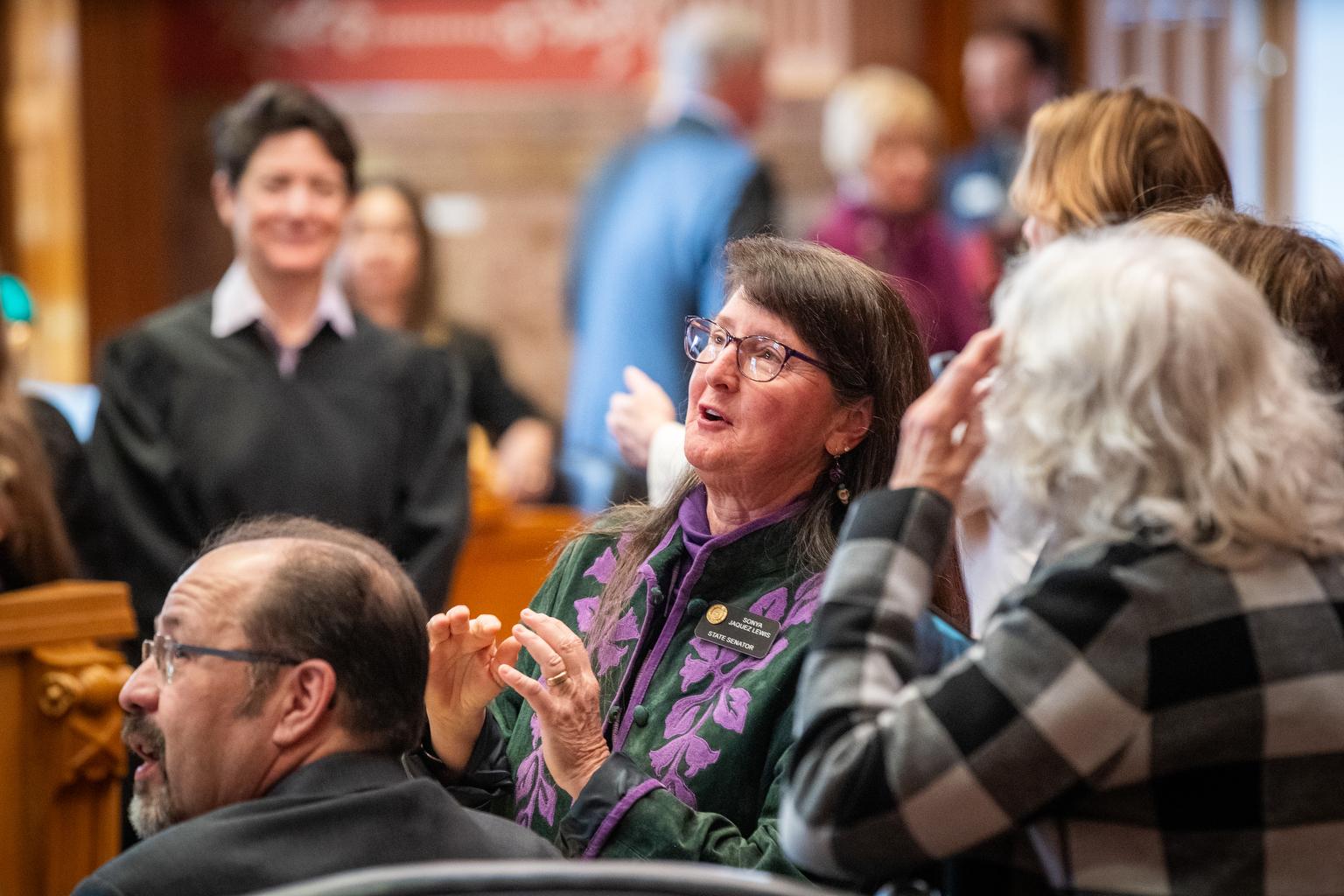
This story was originally published by Chalkbeat. Sign up for their newsletters at ckbe.at/newsletters.
By Jason Gonzales, Chalkbeat
Undocumented students in Colorado have gone on to be teachers, nurses, and business owners thanks to a program that allows them to pay in-state tuition at public universities.
Now the future of that program and ones like it in 23 other states are in doubt after President Donald Trump signed an executive order that seeks to punish states and cities with so-called sanctuary policies.
The order, signed on April 28, also specifically calls out programs that provide in-state tuition for undocumented students who graduated from high school in that state or who meet other residency requirements.
Allowing in-state students who are not citizens to pay less tuition than out-of-state students who are citizens represents discrimination, according to the order, which says that the attorney general, in cooperation with the secretary of the Department of Homeland Security, “shall identify and take appropriate action to stop the enforcement of state and local laws, regulations, policies, and practices favoring aliens over any groups of American citizens that are unlawful.”
Advocates for immigrant students say that without in-state tuition, many undocumented students will struggle to afford college. They don’t qualify for any federal financial aid and face other barriers to college.
“This is absolutely essential for immigrant students,” said Raquel Lane-Arellano, communications manager for the Colorado Immigrant Rights Coalition, which fought to pass Colorado’s in-state tuition law in 2013. “It’s not these students’ fault that our immigration system is so broken. They deserve the opportunity, just like all of their peers, to access higher levels of education.”
So far, Colorado universities are not making any immediate changes to their policies. “The executive order does not provide enough details to truly know what federal actions will be taken,” said Colorado Department of Higher Education spokesperson Megan McDermott.
The Trump order sets up a possible legal showdown over the state-supported tuition programs that immigrant rights and higher education-advising groups have called essential to help undocumented students access higher education and educate them to fill in-demand jobs.
Twenty-four states, including Colorado, Illinois, New York, and New Jersey, along with Washington, D.C. have programs that allow undocumented students to pay in-state tuition. While the programs have received bipartisan support, Republicans in several states have recently filed bills to consider rolling back in-state tuition for undocumented students. Last week, Florida lawmakers ended the state’s decade-old program.
The order adds to an already uncertain environment for immigrant students, who worry about the risks of filling out financial aid paperwork while grappling with deportation fears. Denver Scholarship Foundation’s Natasha Garfield said the college-advising nonprofit will continue to provide students information about their options and allow them to decide whether college is right for them during a time when Trump’s immigration stance has brought incredible uncertainty.
“There are some who are very, very concerned about the state of things, and I don’t think there’s anything that DSF or anyone else could say to reassure them,” said Garfield, the scholarship organization’s director of scholarships and financial aid. “I think that’s completely understandable given some of the actions that we’ve seen coming from ICE [U.S. Immigration and Customs Enforcement] and the federal government.”
The order is part of Trump’s larger push to crack down on people in the United States without legal authorization. His directive to punish states with these programs also included several other enforcement actions such as punishing so-called sanctuary cities and states. The administration filed suit Friday against Colorado and Denver for its policies.
The administration argues in the order that some state and local officials use their “authority to violate, obstruct, and defy the enforcement of federal immigration laws. This is a lawless insurrection against the supremacy of Federal law.”
States have a long history of offering in-state tuition at public universities to youth who were brought as children and without legal status. Texas and California passed the first laws in 2001, and other states followed with similar laws. Each varies in how they approach granting in-state tuition.
About 408,000 undocumented students enroll in higher education each year, although not all benefit from these state programs, according to the Higher Ed Immigration Portal. However, even in states without these laws, some private schools in Tennessee and elsewhere may offer in-state tuition for all students regardless of their residency or legal status. And in Pennsylvania, at least one public institution provides in-state tuition to undocumented students.
Colorado’s Advising Students for a Stronger Tomorrow law, or ASSET, updated in 2019, says students must have attended a Colorado high school for at least one year before graduation or been physically present in Colorado for at least one year to qualify for in-state tuition.
New York’s law says students must have attended at least two years of high school in New York and graduate or receive a general education diploma. Students must also apply to a college or university within five years and show proof of residency. They must also sign an affidavit saying they will file for legal status.
Illinois’ law has similar requirements, while New Jersey requires three years of residency.
National student immigrant advocacy organizations FWD.us, TheDream.US, and the Presidents’ Alliance on Higher Education and Immigration all criticized the order. Collectively, they said states, colleges, and universities shouldn’t overreact and that the order hurts states that need qualified workers.
“Blocking states from offering in-state tuition to undocumented students who have lived in these states for most of their lives would purposefully lock countless individuals out of the higher education system, waste years of educational investment, hurt local economies, and rob all Americans of future leaders,” said Todd Schulte, FWD.us president.
State leaders are still working to understand the impact of the order, and a spokesperson for Colorado Gov. Jared Polis said in a statement the administration is looking into the impacts of this order. The state remains committed to ensuring the state remains a destination for all learners, the statement says.
The state has not filed any legal action against the order, but leaders have been willing to push back on Trump administration orders.
Colorado’s largest university system also doesn’t plan changes at this time. University of Colorado System spokesperson Michele Ames said its schools are committed to following applicable laws and will not make any changes at this time. Other universities, such as the University of Northern Colorado, are monitoring the actions.
Schools across the state have also said that they won’t release individual student information, such as information about undocumented students who attend schools through the ASSET program, to the federal government without a court order or warrant, per federal student privacy laws.
Jason Gonzales is a reporter covering higher education and the Colorado legislature. Chalkbeat Colorado partners with Open Campus on higher education coverage. Contact Jason at [email protected].
Funding for public media is at stake. Stand up and support what you value today.








